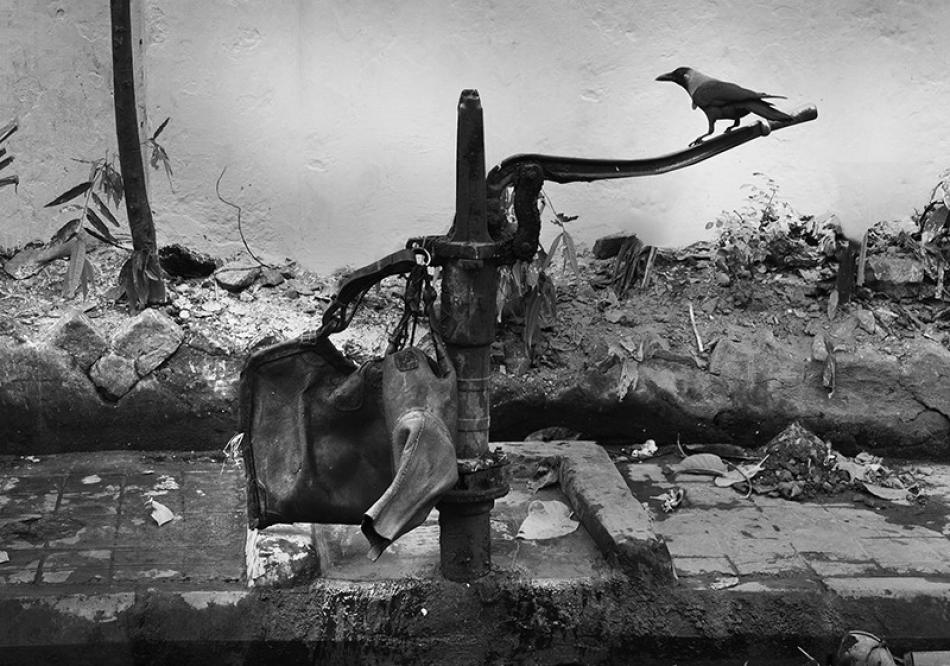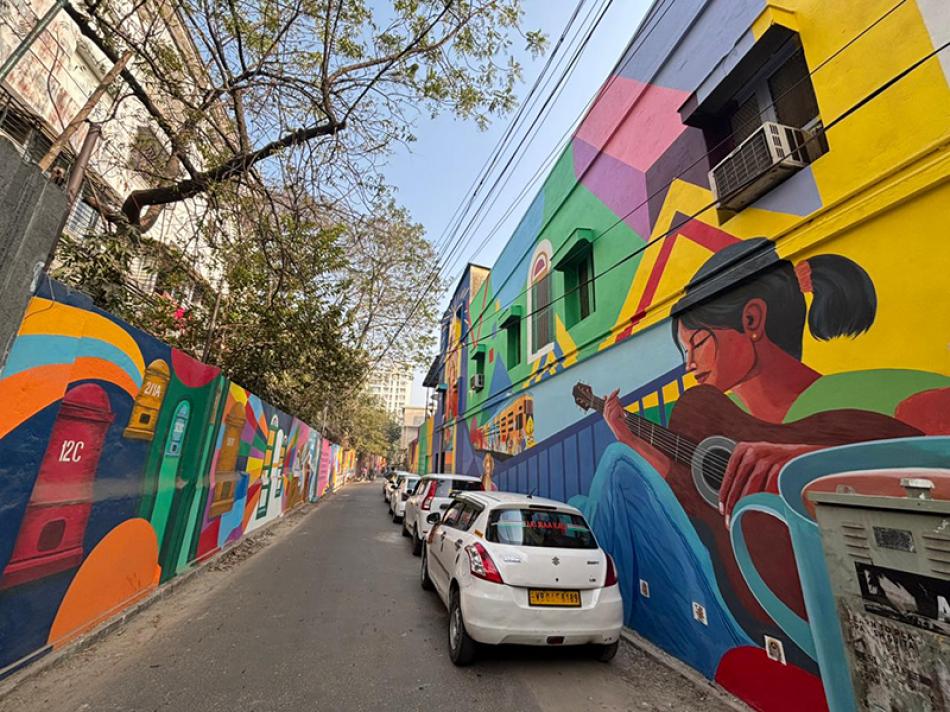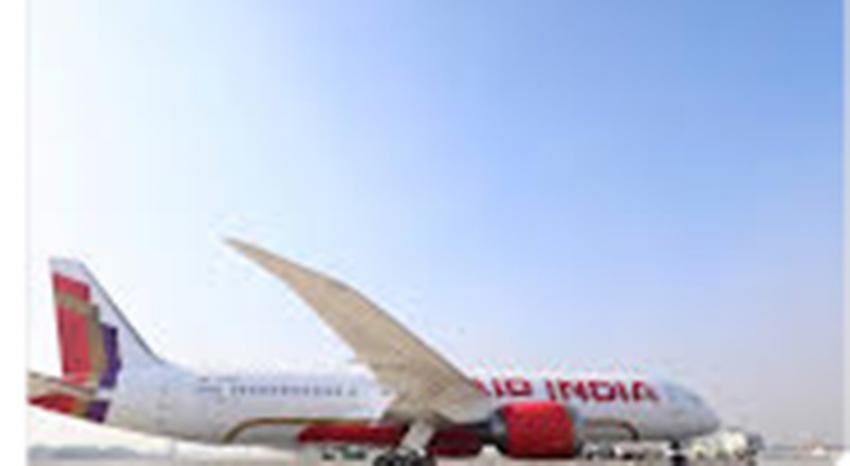NITN | @notintownlive | 02 Aug 2025, 05:05 am
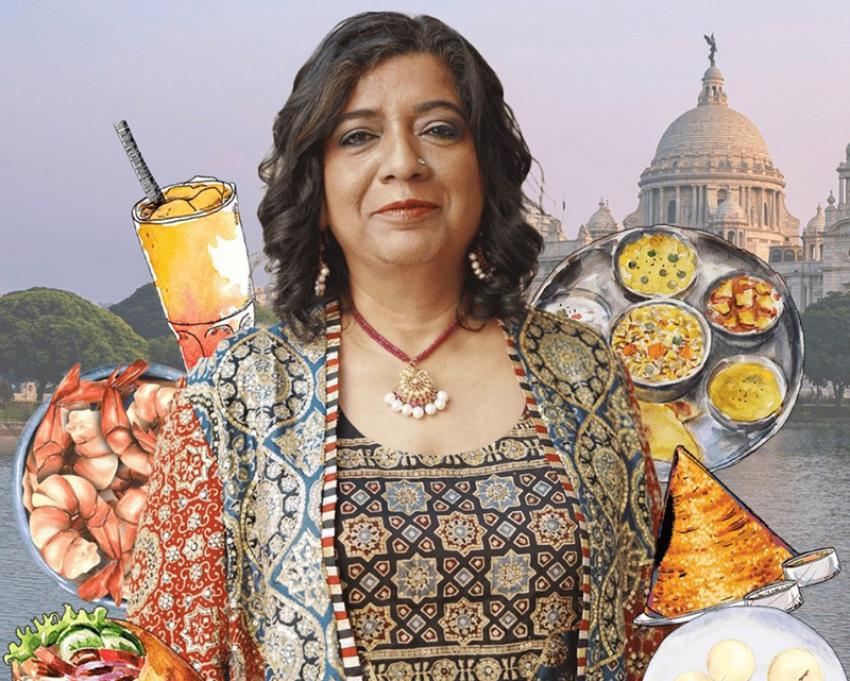
Asma Khan
Asma Khan is a culinary force who has redefined how Indian food is perceived on the global stage. From teaching British home-cooks the soul of spice, to welcoming the King of England to her all-women kitchen, Khan’s journey is nothing short of extraordinary. The owner of Darjeeling Express restaurant in London's Soho, whom Time magazine named one of the year's 100 most influential people in 2024, reveals in a chat with Sreyashi Ghosh about the inspirations behind her famed restaurant and her new book
Born in Kolkata and educated at La Martiniere School, Loreto College, and later at one of the UK’s top institutions, Asma Khan is a role model for resilience, heritage, and reinvention. Now a UN Chef Advocate for the World Food Programme, she continues to stir a change —one plate at a time.
Excerpts of an interview:
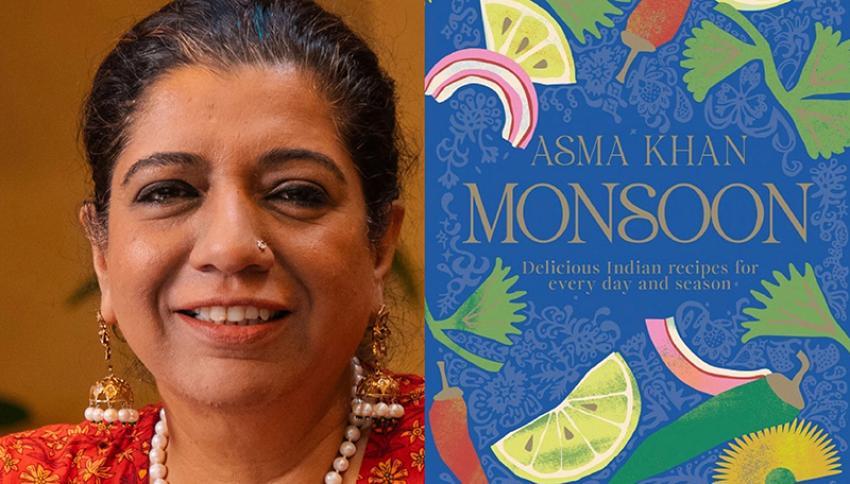
Congratulations on your new book, Monsoon. Why this name?
With Monsoon, I’m not blinding people with science. I’m no expert on Ayurveda. I just know how food works. My book is a celebration with 80 joyful recipes using ingredients from your own kitchen. Monsoon is more than a cookbook; it’s a celebration of tradition made modern. Bengali cabbage with panchphoron and turmeric, Aloo posto - potato with poppy seeds with the right crunch, create magic from humble ingredients. But the monsoon season doesn’t arrive alone. It follows heat and anticipation. The smell of rain, the emotion it evokes, the rhythm of food during that season - they all take us back to childhood.
Writing Monsoon was like threading pieces of memory, taste, and emotion together. That smell of wet earth, those post-rain cravings, the comfort —it’s all there in those pages.
Why is food important culturally?
Indian food is not just flavourful, it’s historically rich and nutritionally complex, tracing back to Harappa and guided by the principles of Ayurveda. The diversity in even the simplest street meal reflects a deeply rooted cultural intelligence around texture and taste. Rather than burden people with jargon, I want to demystify Indian cooking through relatable, transformative recipes.
In an overwhelming world of noise, food remains the most powerful personal anchor. Food uniquely compels people to slow down and connect—unlike language, clothing, or music, food is immediate, intimate, and physical. Bengali traditions like shukto with bitter gourd at weddings offer a visceral education in taste, health, and memory. Bitter foods - now touted globally for gut health, were always part of Bengal’s ceremonial wisdom. What is marketed as innovation in the West often originates in long-held Eastern food practices. From chutneys with fennel seeds as digestive aids to haldidoodh (golden milk), traditional Indian wellness practices are being rebranded and monetised.
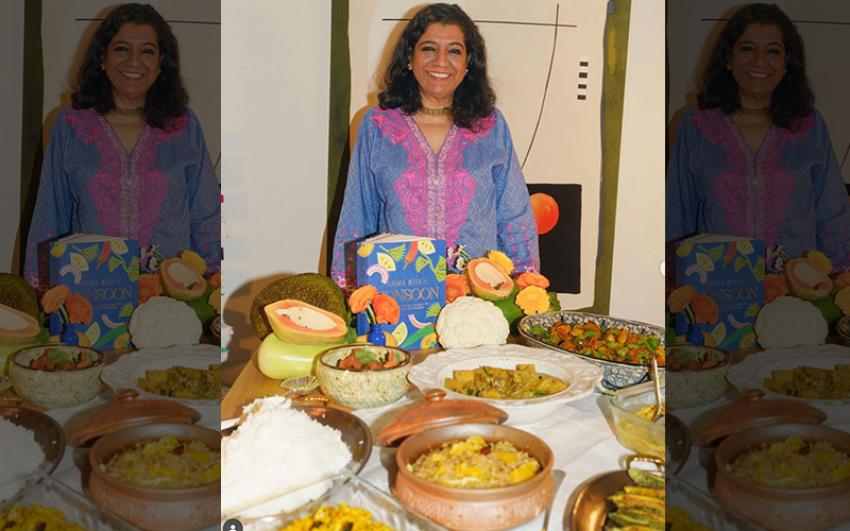
How are you classifying the recipes?
I’m telling the stories of the food so that you can route it to the region where it came from. Take the kebab burger, for instance. It’s not a gimmick—it’s a thoughtful fusion that respects both culinary traditions. The spices, the technique, the cultural memory behind the kebab are all part of the narrative.
Your mother is Bengali, and your father is from North India. How do you bring both legacies together in your cooking?
It’s been a beautiful confluence. My mother’s Bengali roots brought in the delicacy, the layering of flavours, the love for mustard oil and fish. From my father’s side —Rajput and royal—came the richness of Mughlai traditions, the slow-cooked meats, the ceremonial dishes. I don’t try to fuse them artificially. They coexist naturally in my kitchen. One day it’s shorshe-ilish, Hilsa fish with mustard paste, the next it’s narangi pulao with orange from my father’s side. What ties it all together is memory. Every dish I cook is a tribute -to the women who taught me, to the stories I carry, and to the city of Kolkata that raised me.
But more than just ingredients, it was the attitude toward food that shaped me. My father’s family celebrated storytelling and rituals around meals, while my mother’s kitchen was about warmth and instinct.
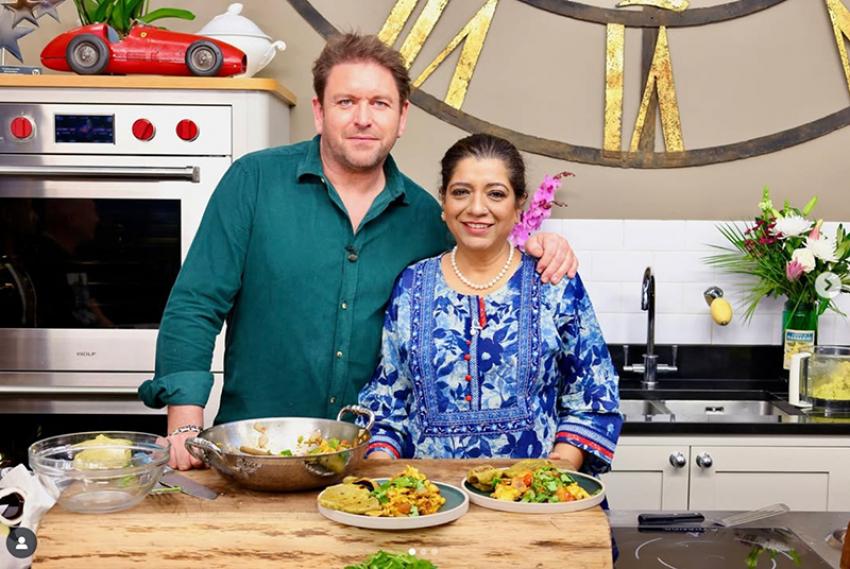
You grew up in Kolkata, how has the city, its culture and your academic background influenced you?
Back then at La Martiniere, it didn’t matter where you came from—no one asked what your father did. Whether you lived in a gully in Kolkata or a grand home in U.P., it was about who you were. That sense of belonging was deeply ingrained. No one asked about religion or background. It was a golden time. The school gave me an innate sense of equality. It wasn’t about prestige; it was about feeling accepted, embraced. That confidence carried me through spaces I didn’t always belong to. I never took systemic barriers personally. It gave me resilience, and education helped me articulate that strength
A plate of chole kulche at Kwality restaurant in Park Street evokes my paternal heritage—a nod to North India’s robust, spice-forward cuisine. The rich gravies blend comfort food with nostalgia for Delhi-style boldness. The chaat at Saturday Club isn’t about convenience, it’s about comfort and community. This isn’t just street food —it’s memory on a plate. No culinary love letter to Kolkata is complete without mishti. From rosogollas to sandesh, Bengali sweets are not merely desserts, but are edible poems offering sweetness as an emotion, not just a taste. Each bite is a reminder of festivals, farewells, and family milestones -memories crystallised in sugar and milk.
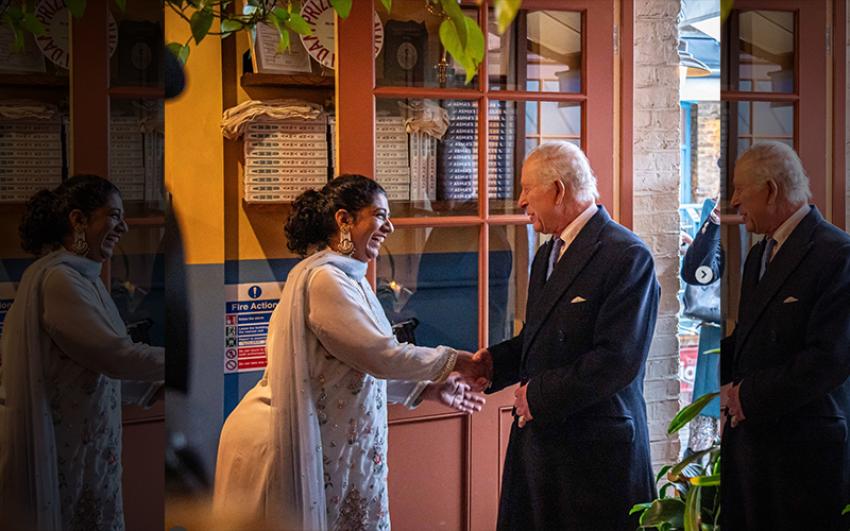
In your role as advisor to the World Food Programme and as a chef advocate, how are you using your platform to address and combat stereotypes and discrimination within the food industry?
I’m very conscious of it. It’s not that I didn’t want this influence—but now that I have it, I carry it with responsibility. I know what it means to be given a seat at the table, and I want to use it to bring in the voices that are never heard—farmers, women, the people behind the ingredients.
What is your inspiration mantra?
I listen to Tagore’s poem every day - Jodi tor daak shune keu na aashe, tobe ekla chalo re – if they pay no heed to your call, walk on your own. The words are so powerful that they inspire me to go on even if there are thorns and obstacles on my way.
Images: Asma Khan Instagram
- This New Place at Zurich’s Bürkliplatz is Quietly Becoming Everyone’s Favourite Stop
- From ancient sea routes to your plate: Taj Bengal’s Jatraa is Kolkata’s must-taste food voyage
- This City is Quietly Redefining What a Holiday Experience Looks Like
- Saigon Sisters in Chicago — A Dumplings & Bao Love Story
- Beyond Old and New: Bickram Ghosh and the Art of Fusion at Serendipity
- From Kennedy’s Proposal to 1850s Saloons: The Three Historic D.C. Restaurants Everyone Must Try
- This city has the best bagel in the US, and it’s not New York!
- I escaped to Pachmarhi — what I found in the queen of Satpura left me spellbound
- Air Canada just ranked the Best New Restaurants of 2025 - And the Top Spot isn't who you think
- Rediscovering Arunachal's Monpa Cuisine: One Woman’s Millet Momo Revolution
Gurgaon : Air India, India’s leading global airline, has unveiled a completely refreshed beverage collection, one that brings together some of the world’s most celebrated wines and spirits at 35,000 feet on international routes.
Indian airline major Air India today announced a significant enhancement to its popular Mumbai-Frankfurt route, with the deployment of its newly delivered, first line-fit (or made-for-Air India)
Saudia, the national flag carrier of Saudi Arabia, and Air India, India’s leading global airline, have signed a codeshare agreement that will take effect in February.

